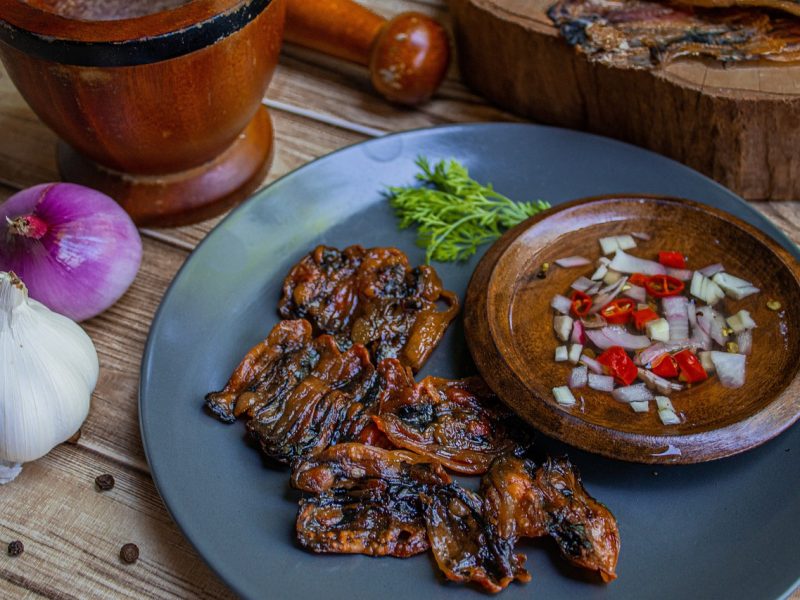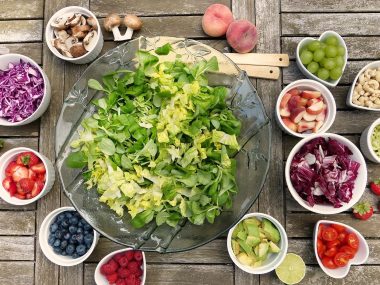Embarking on a weight loss journey often involves reevaluating our relationship with food and adopting healthier eating habits. Mindful eating is a powerful practice that can help us reconnect with our bodies, tune into hunger and fullness cues, and make more conscious food choices.
These actionable tips and strategies will help you practice mindful eating for weight loss, ensuring a safe and successful journey towards your goals.
Understanding Mindful Eating
Mindful eating is the practice of paying attention to the present moment and the sensory experience of eating without judgement.
It involves tuning into hunger and fullness cues, savouring each bite, and cultivating awareness of thoughts, emotions, and physical sensations related to food and eating.
1. Tune Into Hunger and Fullness Cues
One of the fundamental principles of mindful eating is learning to recognise and respond to hunger and fullness cues. Before eating, take a moment to assess your level of hunger on a scale from 1 to 10, with 1 being extremely hungry and 10 being uncomfortably full.
Make sure to eat when you’re moderately hungry (around a 3 or 4) and stop when you’re satisfied but not overly full (around a 7 or 8).
2. Slow Down and Savor Each Bite
Practice eating slowly and savouring each bite to fully experience the flavours, textures, and sensations of your food. Chew each bite thoroughly and pay attention to the taste, aroma, and mouthfeel of the food.
Put down your utensils between bites, take deep breaths, and engage your senses to enhance the enjoyment of your meal.
3. Cultivate Awareness of Emotional Eating
Become aware of the role that emotions play in your eating habits and how they influence food choices. Notice any patterns of emotional eating, such as eating in response to stress, boredom, sadness, or anxiety.
Instead of using food as a coping mechanism, explore alternative ways to manage emotions, such as practicing mindfulness, engaging in physical activity, or seeking support from friends and loved ones.
4. Practice Gratitude and Appreciation
Cultivate a sense of gratitude and appreciation for the food you eat and the nourishment it provides for your body. Before eating, take a moment to express gratitude for the meal in front of you, acknowledging the effort that went into its preparation and the nutrients it offers.
By savouring each bite with gratitude, you can enhance the enjoyment of your food and foster a deeper connection to the eating experience.
5. Listen to Your Body’s Signals
Learn to listen to your body’s signals of hunger, fullness, and satisfaction, rather than relying on external cues or arbitrary rules about when and how much to eat. Trust your body’s innate wisdom to guide you in making nourishing food choices that support your health and well-being.
Pay attention to how different foods make you feel physically, mentally, and emotionally, and adjust your eating habits accordingly.
6. Choose Nutrient-Dense Foods
Prioritise nutrient-dense foods that nourish your body and provide essential vitamins, minerals, and antioxidants. Fill your plate with a variety of colourful fruits, vegetables, whole grains, lean proteins, and healthy fats to ensure you’re meeting your nutritional needs while supporting weight loss goals. Always aim to eat mindfully and with intention, focusing on the quality and nutrient content of your food choices.
7. Practice Portion Control
Practice portion control by being mindful of serving sizes and listening to your body’s signals of fullness. Use visual cues and portion control techniques to avoid overeating and ensure you’re eating appropriate portions for your individual needs.
Pay attention to feelings of satisfaction and satiety, and stop eating when you’re comfortably full, even if there’s food left on your plate.
8. Minimise Distractions During Meals
Minimise distractions during meals by eating in a calm, quiet environment free from distractions such as television, smartphones, or computers. Create a designated eating space where you can focus on the sensory experience of eating and fully engage with your food.
By eliminating distractions, you can enhance your awareness and enjoyment of the eating experience.
9. Practice Self-Compassion
Approach mindful eating with an attitude of self-compassion and non-judgment. Be gentle with yourself and avoid self-criticism or guilt-tripping if you veer off track or make less-than-perfect food choices.
Remember that mindful eating is a practice, and it’s natural to have moments of imperfection along the way. Treat yourself with kindness and compassion as you navigate your weight loss journey.
10. Stay Consistent and Patient
Consistency is key when it comes to practicing mindful eating for weight loss. Stay committed to incorporating mindful eating principles into your daily life, even when faced with challenges or setbacks.
Be patient with yourself as you cultivate new habits and behaviours, and trust that consistent practice will yield positive results over time.
By embracing mindful eating as a way of life, you can nourish your body, support weight loss goals, and foster a healthier, more balanced relationship with food.
Conclusion
Mindful eating is a powerful practice that can transform your relationship with food and support your weight loss journey.
By tuning into hunger and fullness cues, savoring each bite, and cultivating awareness of emotional eating patterns, you can make more conscious food choices and nourish your body with intention.
Incorporate these tips and strategies into your daily routine, and embrace mindful eating as a sustainable approach to achieving your weight loss goals.
With patience, consistency, and self-compassion, you can cultivate a healthier, more balanced relationship with food and enjoy lasting success on your journey towards optimal health and well-being.






